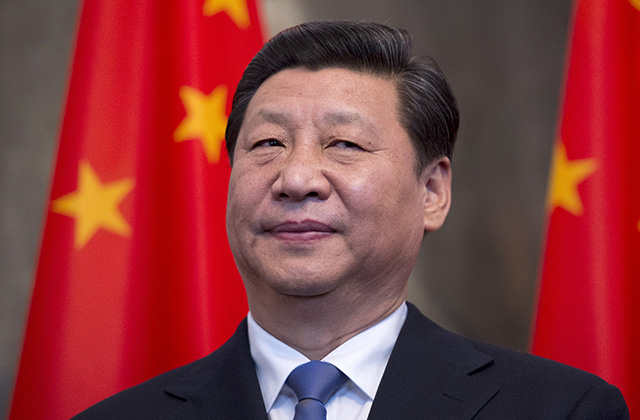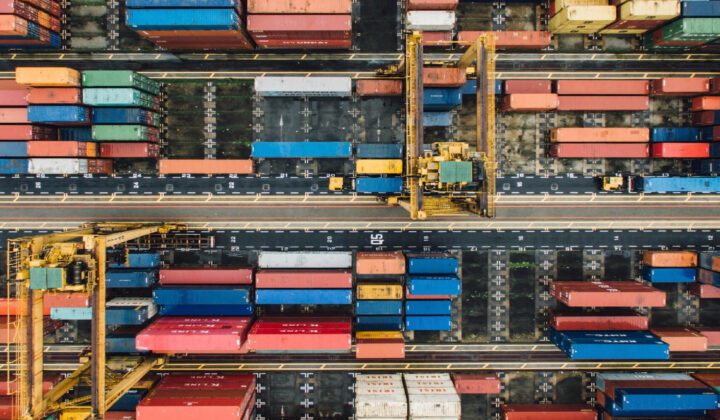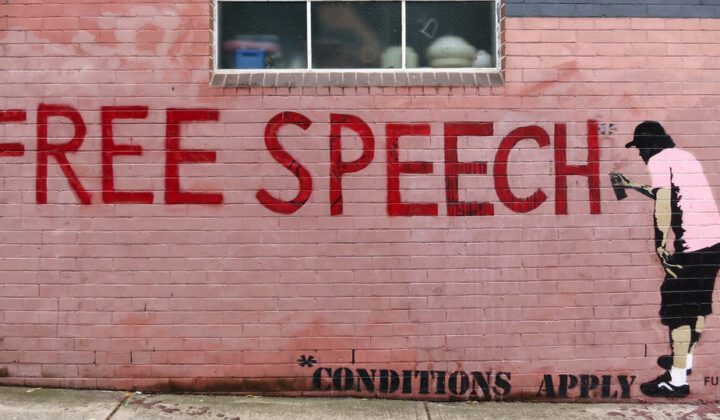How Do We Restore Accountability in the Executive Branch?
When Donald Trump exits the presidency on January 20th, he will lose the protection against criminal prosecution currently afforded to him as a sitting President. The question of whether, and how, Trump will be held accountable for possible crimes he committed in office, from obstruction of justice in the Mueller investigation to bribery for threatening to withhold aid to Ukraine in 2019, will prove difficult as the nation moves forward. Notably, this does not include potential criminal violations prior to assuming the presidency, including campaign finance violations related to the 2016 election and financial crimes currently being investigated by the Manhattan DA.
Furthermore, much of the Trump administration’s controversial conduct arguably may not be of a criminal nature, such as the President using his Office to enrich himself, the corrupt use of the pardon power, the administration’s negligent response to the pandemic, potentially undermining the USPS, and the President’s attempt to overturn the results of the 2020 election. With this in mind, how could the next Administration attempt to restore accountability in America?
1. Should Trump be prosecuted?
Many argue that prosecuting Trump would serve as a powerful reaffirmation of the Rule of Law. They contend that declining to charge Trump because of the political consequences would be tantamount to putting him above the law solely because of his office. This group also worries that allowing Trump to escape liability would set a dangerous precedent that future executives can commit crimes with impunity.
However, opponents of prosecution believe that the resulting political circus would make the O.J. trial look tame, exacerbating festering wounds and undermining the Biden administration’s attempts to govern. This group says that indicting Trump could contribute to his anti-establishment mythos regardless of the case’s outcome. Indeed, in the event that prosecutors fail to secure a conviction, Trump’s supporters would see it as vindication against nefarious government forces. And if Trump loses in court, the conviction could make him be seen by some as a martyr, victimized by statutes that have never before been applied against a former president. Finally, many believe prosecution of political opponents once they lose power is reserved for banana republics and authoritarian regimes; we don’t do that here.
2. What are some other options?
The importance of holding Donald Trump and his administration accountable goes well beyond the considerations that would ordinarily apply in the prosecution of a criminal defendant. Presidential accountability is at the core of the relationship between citizens and their government; between our government and the governments of our allies. An accounting of what happened over the past four years could help restore the critical trust of our citizens and allies in our democracy and institutions.
As Josh Marshall writes, we can restore accountability and trust in different ways. Criminal accountability is one option, but given the broader interests at stake here, there are alternative approaches, as well.
For example, many commentators have called for the creation of a bipartisan or nonpartisan fact-finding commission to construct a comprehensive accounting of the Trump presidency, in which witnesses would be given immunity for their testimony. Advocates argue that expert and insider testimony on the vulnerability of checks and balances under this administration could be used to strengthen them for the future, and that creating an official record that the electorate and future generations can judge for themselves would provide transparency and accountability.
But critics point out that subjecting the Trump administration to what functionally amounts to a Truth and Reconciliation Commission (similar to the legal process utilized in post-Apartheid South Africa) is sure to be a divisive proposition no matter how impartial the participants.
Others have suggested more moderate gestures, including reforms to bolster the Presidential Records Act to build a robust archive for historians or an audit of the administration’s coronavirus response.
No matter what happens, a reckoning for potential abuses of power will almost certainly be perceived as partisan. The twin goals of national healing and upholding the Rule of Law could be at odds: how we reconcile this conflict will be one of the defining decisions of the next four years.
___

As the Holidays Approach, 50 Million Americans Go Hungry
Throughout this year, our attention has been diverted by countless crises. Amidst all of this, a nationally destabilizing domestic tragedy––of grave consequence to both our country and democracy––has largely escaped notice. This holiday season, 26 million Americans will not have enough to eat.
More Americans are going hungry now than at any point since the Census Bureau began tracking food insecurity in 1998. According to Feeding America, the country’s largest hunger-relief organization, more than 50 million Americans are so poor, they cannot purchase food on a regular basis. As Great Depression-era bread lines return, some Americans are waiting all night, 7 or 8 hours in line, to get a free meal in the morning.
COVID-19 has not only crippled our health care system, but hollowed out the already meager finances of many American families. After steadily declining from its peak of 46.7 million Americans at the height of the Great Recession, the poverty rate has skyrocketed once again. News reports indicate that 43.5 million Americans now live in poverty.
Poverty and hunger are widespread across America, but the economic shocks of the recession are most brutally devastating traditionally underprivileged communities. Even before the pandemic, black children were three times more likely than their white peers to live in poverty. Today, Feeding America projects that 80% of all majority-black counties are experiencing high levels of food insecurity.
Furthermore, rural America, already home to 86% of the counties where children face the greatest food insecurity, is hurting. Rural states like West Virginia, Vermont, and North Dakota have reported a more than 50% rise in food insecurity.
1. What has the government done to tackle the hunger crisis during the pandemic?
When the government initially provided $2 trillion in CARES Act relief at the beginning of the pandemic, the federal infusion of cash alleviated the insecurity of many households. According to one Columbian study that used an adjusted, month-by-month definition of poverty, four million Americans were actually able to briefly escape poverty, bolstered by the CARES Act stimulus.
However, the March legislation was only intended to bolster the economy for a few months. Now, two studies, including the Columbia paper, estimate that between six to eight million more Americans have slipped into poverty since the CARES Act funds dried up. Moreover, only one-fifth of the $4 trillion Congress spent during COVID-19 has gone toward American families at a time when they need it most.
In some ways the economy has bifurcated. At a time when some 50 million Americans struggle to put food on the table, the DOW Jones smashed an all-time record, surpassing 30,000 (it had peaked at 14,000 before the Great Recession).
2. What more can be done?
The Democratic House has already passed two COVID-19 relief bills, a $3 trillion bill in May and a $2 trillion bill in October. The Republican Senate rejected both. After the announcement of a bipartisan $900 billion bill last week, Congress may reach a compromise soon.
Nevertheless, we all must step up to address our domestic hunger crisis. Feeding America estimates that Americans will need 13 billion donated meals next year (compared to 4 billion in 2019). Individuals can help by donating to Feeding America.
If you cannot give financially, local food banks also need volunteers to deliver pre-packaged meals. 51% of all food programs run entirely on volunteer labor. Check with your local organization about whether you can assist with a Mobile Food Pantry, delivering meals directly to clients in high-need areas, or help at a drive-thru Food Pantry. You can find the food bank nearest to you here.
___

Source: Johannes Eisele—AFP/Getty Images
Fascist Ideology on the Rise in Communist China
The Atlantic recently profiled China’s ideological shift, in an article penned by Oxford scholar Chang Che.
Che notes that as China grows increasingly authoritarian at home and abroad, many of its preeminent academics have supported their country’s actions by co-opting the statist ideology of German philosopher Carl Schmitt.
Called Hitler’s “Crown Jurist,” Schmitt’s arguments for the supreme authority of the sovereign over the rule of law gave the Nazis a formal justification for their political murders, particularly in the early years of the regime. Ultimately, Schmitt argued that the law is a servant of the state and does not have value independent of those concerns.
China’s academics have adapted Schmitt’s ideas to justify the suspension of civil liberties in the name of “protecting” the state. Their reasoning is that the ‘one country, two-systems’ framework is an existential threat to the stability of the Beijing government and therefore must be subordinated to it. Indeed, this was the very justification used last summer to support the national security law which effectively killed Hong Kong’s democracy. Because the existence of civil liberties anywhere in China threatens the entire authoritarian state apparatus, Beijing can use Schmitt’s justifications to eliminate civil liberties everywhere.
Why Would Communists Adopt Fascist Ideology?
Despite their differences in theory, fascism and communism both end up in the same place – totalitarian one-party states, which use the mechanisms of authoritarianism to prop up undemocratic, ruling regimes. Ultimately, they are both about the naked exercise of power, not principle.
In China today, the influence of Schmitt’s ideology indicates that the ruling regime is more focused on providing security for an ethno-nation-state than in promoting a global class struggle, as Communist doctrine would suggest. Such communist ideas may not be as effective as China looks for an intellectual reason to intern Uighur Muslims, expand aggressively in the South China Sea, and abolish presidential term limits.
It’s important to note the hypocrisy at the core of the world’s authoritarian regimes. As China continues to exert its influence at home and abroad, expanding into a world empire, the liberal international order needs to marshal its resources in defense of its principles. The ideas of Carl Schmitt are inspiring and empowering in their own right, which is why authoritarian states throughout history have used them to justify their brutality. However, it is the job of countries that value liberalism, freedom, and democracy to stand up to these perversions of the state. This is one of America’s greatest challenges and responsibilities in the years to come, as illiberalism further entrenches itself across the globe.





